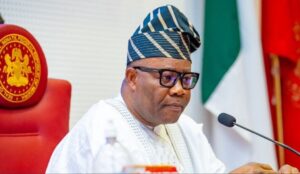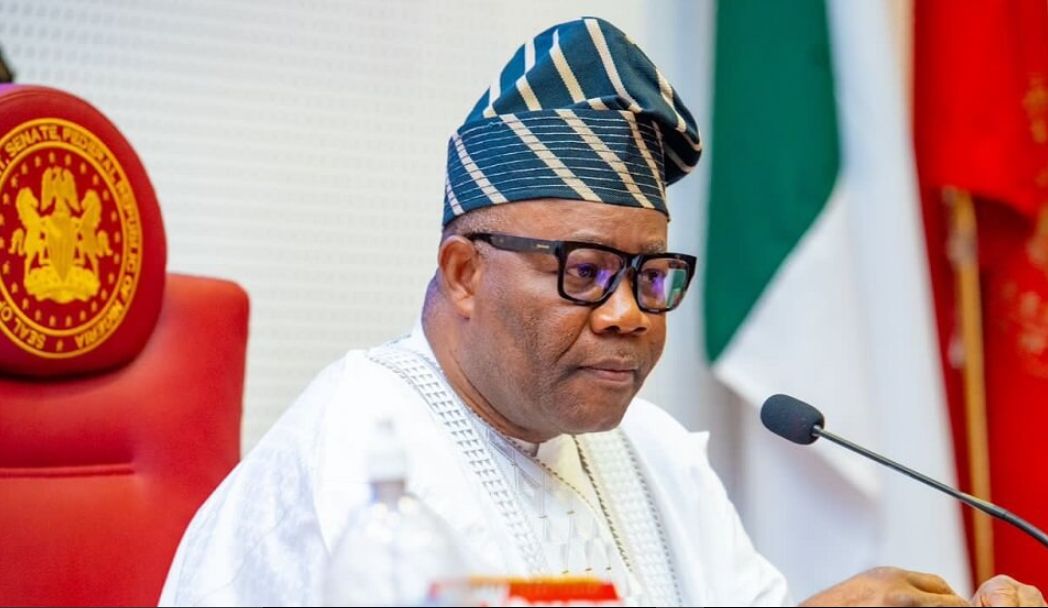The National Assembly is Nigeria’s bicameral legislature and it has the Senate as its upper house. With three senatorial districts for each state and one senator elected by the Federal Capital Territory, there are 109 senators in all. Senators are elected to four-year terms without term limits, meaning they can be re-elected indefinitely.
Some of the major roles carried out by the Senate President are the enactment of laws, advising and consenting to government nominations, approving treaties with foreign governments, and attempting impeachments, which are all important functions of the Senate in the legislative process.
So, this brings us to today’s topic of discourse, which will be about knowing the current Senate President. Let’s get into the business of today.
READ ALSO: Who Is The Deputy Senate President Of Nigeria
About The Current Senate President in Nigeria

Godswill Akpabio is the current President of the Nigerian Senate, having assumed office on June 13, 2023.
Some Key Points About Him:
Godswill Akpabio was born in Ukana, Ikot Ntuen, Essien Udim, Akwa Ibom State, on December 9, 1962. He attended Nigerian Law School and graduated with a law degree from the University of Calabar.
He furthered his career in the private sector where he worked as a teacher and as the Managing Director/CEO of EMIS Telecoms Limited before he entered politics.
From 2002 to 2006, he worked under Governor Victor Attah as a Commissioner in several Akwa Ibom State Ministries. Before leaving office in 2015, he was elected governor of Akwa Ibom State twice.
Serving in the Nigerian Senate from 2015 to 2019, he was elected. The next year, he was named Senate Minority Leader. From 2019 until 2022, he was the Minister of Niger Delta Affairs. In 2023, he was elected President of the 10th Nigerian Senate, defeating Abdul’aziz Yari.
READ ALSO: Complete List Of Current Senators Representing Kebbi State
Historical Review of Nigerian Senate Presidents
Meanwhile, it can be recalled that the first Senate President, Nnamdi Azikiwe, presided over the body from 1960 to 1963. The only Senate President to become President of Nigeria under the prescribed line of succession was Nwafor Orizu.
Ameh Ebute served for the shortest period—less than 17 days—before the Senate was dissolved in 1993. David Mark was the Senate President for the longest period, serving from 2007 to 2015.
On the other hand, due to his birth in London, Bukola Saraki became the first Nigerian Senate President who was born outside Nigeria.
READ ALSO: Nigerian Presidents From 1960 Till Date
The Role And Importance Of The Senate President
The Nigerian Senate, which is the upper house of the National Assembly, is presided over by the Senate President.
The Vice President is first in line to become the President of Nigeria, followed by the Senate President. The 109 senators choose the Senate President using an indirect election process.
As the leader and moderator of Senate proceedings, the Senate President is an essential component of the legislative process.
The Deputy President of the Senate, along with other key officials such as the Majority Leader, Deputy Majority Leader, Minority Leader, Deputy Minority Leader, Chief Whip, Deputy Chief Whip, Minority Whip, and Deputy Minority Whip, support the President of the Senate.
The Senate President is also in charge of authorizing agreements with foreign governments, advising and consenting to government nominees, and overseeing the impeachment process.
References

